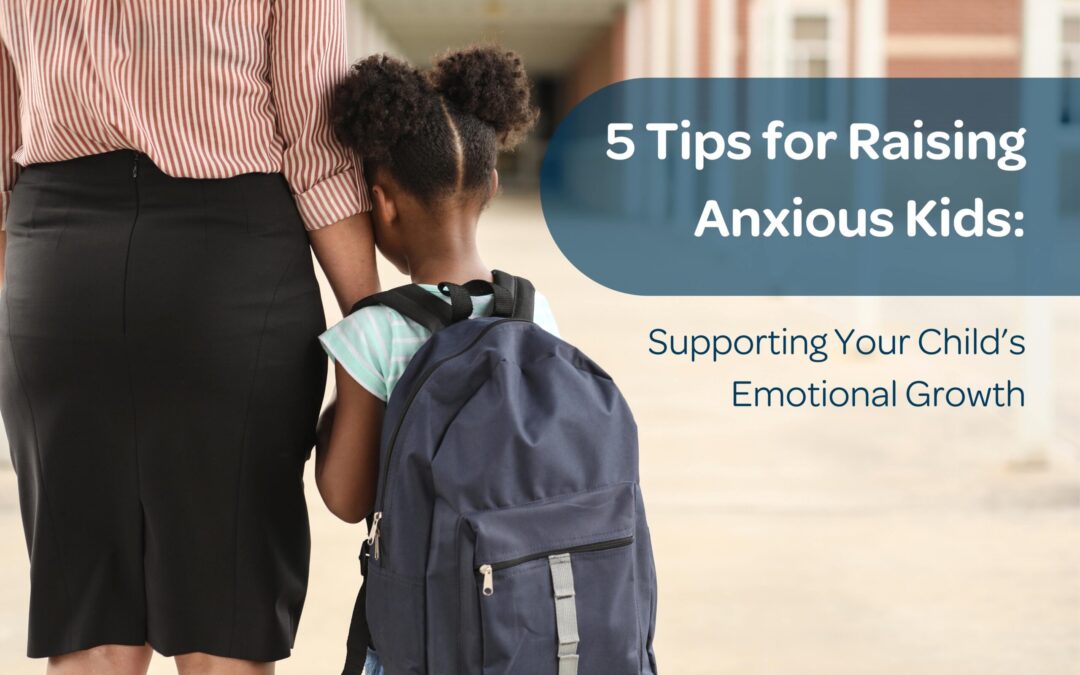Anxiety affects 20.5% of young people globally, making it a growing concern among parents. It can be difficult to see your child struggling, so it’s only natural to want to protect them from any discomfort. However, it’s important to remember that anxiety is a normal emotion that can be managed. With the right parenting approach, you can support your child’s emotional growth. Here are five tips rooted in the Conscious Discipline philosophy—a trauma-informed approach that emphasizes teaching skills to create a safe, connected, problem-solving environment for families—to help you get started.
Make sure your child feels heard
One of the best ways you can make your child feel heard is to validate their feelings. Let them know that it’s completely normal to feel anxious at times. Give them a safe space to speak their mind freely without fear of judgment. Listen attentively to what they have to say and take the time to understand what’s going on in their head. If your child has difficulty verbalizing their emotions, suggest alternative forms of communication, such as writing or drawing. This way, they can convey their thoughts and feelings, and you can better understand their perspective.
Be supportive, but don’t enable
While it’s important to acknowledge your child’s struggles with anxiety, providing excessive reassurance, such as avoiding situations that may reinforce their fears, can be counterproductive.
For instance, if your child is afraid of dogs, avoiding all dogs or going to the park to avoid one may seem like a helpful response to their anxiety. However, this behavior may reinforce their fear of dogs and make it even harder for them to overcome it. Instead, find a balance between providing support and encouraging your child to face their fears to reduce their anxiety over time.
Promote healthy coping strategies
As a parent, you are your child’s first role model, and the way you handle life’s challenges can shape how they approach their own. This is especially true when it comes to anxiety, so it’s essential to model healthy ways of managing emotions. Teach your child to practice self-care techniques such as deep breathing, positive self-talk, mindfulness, or seeking support from family and friends. But keep in mind that every child is different, and what works for one may not work for another, so encourage your child to try different strategies and find what works best for them.
Keep anticipatory periods short
For children with anxiety, waiting for a feared event can feel like an eternity. Whether it’s a visit to the dentist or a big family party, the anticipation can be overwhelming. Help your child by keeping waiting periods as short as possible. Don’t let them fixate on the future and what might go wrong for too long.
For example, if your child gets anxious about going to the dentist, limit the anticipatory period by telling them about their appointment either on the day itself or the night before. Additionally, you can distract them with a special treat or fun activity on the day of the appointment to shift their focus away from their worries and onto the present moment.
Help them develop independence and problem-solving skills
Finally, foster independence and problem-solving skills to build your child’s confidence. Encourage them to take on new challenges, such as doing their homework on their own or ordering their own food at a restaurant, to gradually develop their sense of autonomy. Furthermore, help your child think through their anxiety and develop a plan to manage it. This can involve breaking down problems into smaller steps, brainstorming different solutions, and evaluating each option’s pros and cons.
In conclusion, raising an anxious child can be challenging, but incorporating a trauma-informed approach into your parenting can help your child navigate their emotions, overcome their anxiety, and reach their full potential. For more resources on nurturing your child, check out Celebree School blogs.

